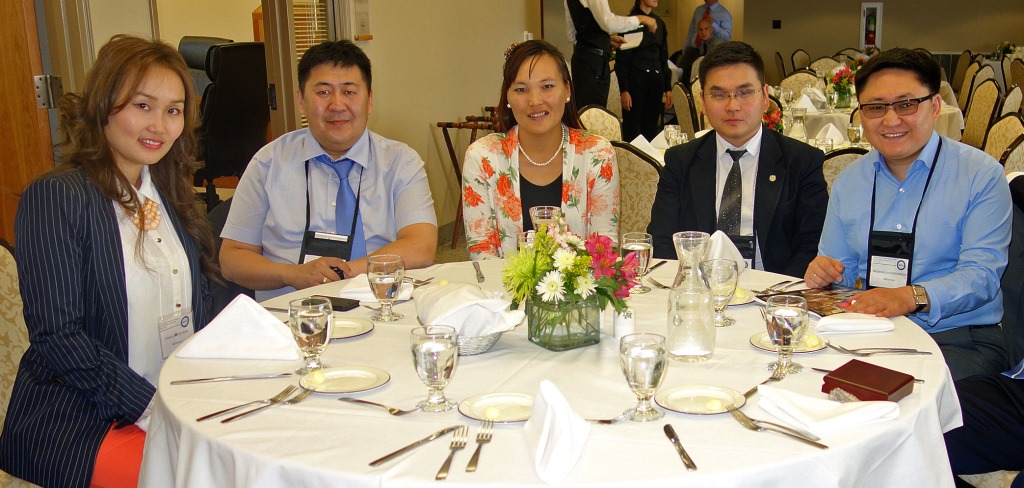Symposium 2013: Mongolia

Joseph Hepworth reporting
Moderator: Richard Page
Speakers:
- Bukhchuluun ENKHBOLD
Secretary, City Council of Ulaanbaatar - Amarjargal BAT-OCHIR
Officer, Coordinating Council for Crime and Prevention of Ulaanbaatar, Khural City Government - Myatavdorj MUNKHBAT
Vice-Director, Immigration Agency of Mongolia
Mongolia is located in Central Asia, bordered by Russia in north and China to the south. In 1932, Mongolia became communist country. In 1990 Mongolia overthrew the communists and are now democratic. Mongolians are very peaceful people. Historically, Mongolia was Buddhist. In 1930, Mongolia had about 100,000 monks. In 1932, the communist government killed all the monks and destroyed most of the temples. Mongolians who were related to the Buddhist monks were also persecuted. After Stalin died, the Russians took a more moderate approach (from 1940 to 1990). Recently, the Mongolian government, because of the persecution, has apologized and has been making payments for the persecutions. All religious organizations in Mongolia must register with the government. Mostly the government inspects religious organizations to make sure that they comply with codes, including health and food codes. 253 religious organizations have registered in City of Ullanbaatar. The government inspects the activities of religious organizations. The council in each province decides registration procedures. Every person in Mongolia has freedom to choose their religion. 90% of the populace is Buddhist. Christianity, Shamanism, Shinto, and Muslim also peacefully coexist. The Mongolian Constitution requires religions to respect the law. No religion is preferred by the Government, but about 90% are Buddhist, so many national holidays are based on the Buddhist religion.